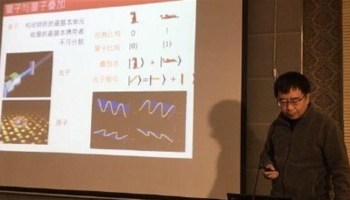PETALING JAYA: They are supposed to be guardians of the environment, and yet “certain enforcement officers” are found to be tolerating illegal activities that are detrimental to nature – all for personal gain.
Pollution and unauthorised felling of trees, for instance, could be traced to those working in cahoots with the culprits, according to sources.
Several recent cases such as the illegal bauxite mining in Kuantan, flash floods in Cameron Highlands and the illegal sawdust factory in Kampung Sungai Lembu, Penanti, Butterworth, were all linked to abuse of power and corruption.
“Some of them are more inclined to soliciting and receiving monetary gains in lieu of their responsibilities in protecting the natural surroundings.
“As a result, it has created greater problems to the fragile environment at the expense of future generations,” said a source.
The source added that stern action needed to be meted out against these irresponsible officers in order to put a stop to the wanton destruction.
If nothing was done, it could lead to adverse effects to the people in terms of public health and safety, the source said.
“All enforcement agencies tasked to preserve the environment must be serious in discharging their duties diligently.
“In this regard, the Malaysian Anti-Corruption Commission (MACC) has done its part to send out a stern warning with numerous arrests and prosecutions in court,” the source said.
Over the past few months, scores of enforcement officers including those from the Customs, Land Office and local councils were nabbed on suspicion of receiving bribes to turn a blind eye on illegal activities detrimental to the environment.
The MACC also held several dialogues with NGOs and environmental groups through an Environmental Protection and Anti-Corruption Caucus to share information on corruption issues.
With this strategic collaboration, illegal activities such as illegal logging, river pollution and clearing of land could be prevented from recurring.
By Simon Khoo The Star/Asian News Network
Authorities fighting an uphill battle against ‘rape of hills’
PETALING JAYA: The authorities are waging an endless war against illegal loggers, with some enforcement officers even labelling the wanton destruction of trees as “raping the hills”.
Cases of such destructive activities in recent years include uncontrolled logging and illegal farming in Cameron Highlands, which polluted several rivers.
In April this year, a former Terengganu Forestry Department director was charged with accepting RM60,000 from a timber contractor four years ago as an inducement to approve a logging application for Hulu Terengganu Forest Reserve.
Two men were detained in the Bukit Bauk Forest Reserve in Dungun in November last year for removing evidence of illegal logging during an ambush by the Forestry Department. Some 400 tonnes of logs were reportedly seized.
In August last year, a Datuk Seri and two others were arrested in connection with illegal logging in the Cerul forest reserve in Terengganu. They produced a letter from a “high-ranking officer” to evade arrest but failed.
In Pahang, 11 people were detained by the Forestry Department for trespassing into forest reserves with the intent to steal high-value timber.
The Auditor-General’s Report 2015 highlighted illegal logging and encroachment in Perak forest reserves and said it was due to the lack of monitoring and effective enforcement by the Perak Forestry Department.
Logging in Kelantan has also come under scrutiny following allegations of illegal and uncontrolled logging being a possible cause of the 2014 floods in Kuala Krai.
In 2013, Kelantan-based NGO Young People against Corruption (Ombak) discovered rampant land clearing and wanton destruction of virgin forests in Kuala Krai and Gua Musang, affecting at least five hills stretching from the Pahang-Kelantan and Kelantan-Perak borders.
Ombak president Wan Khairul Ihsan Wan Muhammad described the destruction as the “rape of the forested hills”, adding that the activities were stealthily done in the middle of forest reserves to avoid detection.
Anti-graft officers out to stop illegal timber business
PETALING JAYA: Illegal logging, which has cost the country billions of ringgit in losses in taxes and revenue, is the latest target of the Malaysian Anti-Corruption Commission (MACC).
Remote area: A file picture of a suspected illegal logging site in Bakun, Sarawak, that was raided by the MACC.
Anti-graft officers will be focusing on this issue after tackling illegal land clearing, bauxite mining and unlicensed factories.
It is learnt that incidents of illegal logging are “quite rampant and extensive”, causing a lot of destruction to the nation’s fragile eco-system and environment.
Some of the illegal activities are believed to be taking place deep in the jungle, including forest reserves and catchment areas, hidden from public view.
The problem is made worse when some enforcement officers tasked with taking action against illegal loggers are believed to have turned a blind eye and worked in cahoots with illegal loggers.
In return, the officers are said to be promised a certain percentage from profits from the illegal activities every month, paying no heed to the destruction of the country’s forests.
It is learnt that these unethical officers are raking in tens of thousand of ringgit every month as kickback and side income to finance their lavish lifestyle.
MACC deputy chief commissioner (operations) Datuk Azam Baki said such illegal activities must be nipped in the bud before they cause irreparable damage.
“We have received very reliable information from the public on illegal logging.
“It is not just in one particular area, but in several states throughout the country, including Sabah and Sarawak.
“We have set up a few flying squads and they are now collecting evidence on the ground,” he said when contacted yesterday.
He said illegal logging has caused serious pollution, while natural disasters, such as flash floods and landslides could occur more rapidly, endangering the lives of the people.
Azam said the main focus of investigations will be on elements of corruption and abuse of power involving several enforcement agencies, their officers and logging companies.
“Once we have gathered all the necessary evidence, a sting operation will be launched to nab the culprits,” he added.
He said MACC would be moving into several states “very soon”, adding that “we are pretty serious in tackling this issue”.
He welcomed tip-offs from the people to assist in putting a stop to illegal logging and other activities detrimental to the environment.
“We will also work closely with NGOs and environmental groups to collect information,” he added.
In November 2014, the then Sarawak chief minister Tan Sri Adenan Satem declared war on illegal logging, saying Sarawakians must not tolerate corruption anymore because millions in revenue had been lost.
The state, he said, had gained a bad reputation internationally because of “this robbery which is carried out in broad daylight”.
The MACC swung into action with a massive crackdown dubbed Ops Gergaji the following year, and together with several agencies, some 400 bank accounts belonging to companies and individuals with about RM600mil were frozen.
About RM1mil worth of illegally felled logs were also seized.
By Simon Khoo The Star/AN
Related posts:
Long and winding road: This satellite
picture from Google Earth Pro shows five planned interchanges of the
Teluk Bahang-Tanjung Bun...
Behind BJ Cove houses at Lintang Bukit
Jambul 1 is an IJM Trehaus Project. Approximate Coordinates :
5°20'38.47"N,100°16'...
LATELY, we have been seeing many
photographs and a lot of video footage of handcuffed men and women in
orange T-shirts bearing the wor...

 Chinese ideas make waves
Chinese ideas make waves


 China Wen:Serve the people well, aim for big accomplishments, not big titles!
China Wen:Serve the people well, aim for big accomplishments, not big titles!




























